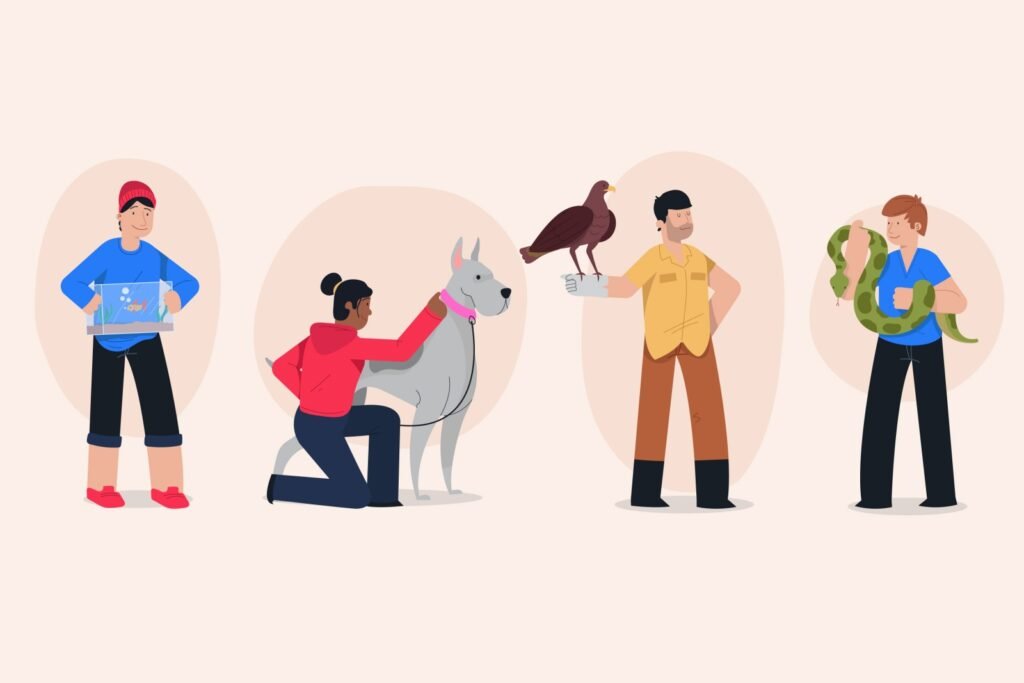Exploring Animal-Centered Professions
For those who have a genuine passion for animals, building a career around that interest offers both personal satisfaction and professional fulfillment. Animal-focused careers are diverse and expanding, covering everything from direct medical care to advocacy, training, research, and beyond. Whether someone is drawn to clinical work, hands-on interaction, or behind-the-scenes support, there are numerous professional avenues to consider.
Veterinary medicine remains one of the most recognized options. Veterinarians diagnose, treat, and prevent disease in a wide range of animals, from household pets to livestock and wildlife. It’s a highly respected field that requires a rigorous educational path but provides the opportunity to make a profound impact on animal health and public safety. Within this field, opportunities for specialization abound—ranging from surgery and dermatology to exotic animal care and zoo medicine.
For those not looking to attend veterinary school, becoming a veterinary technician is a rewarding and accessible alternative. Vet techs assist veterinarians with clinical procedures, patient care, and diagnostics. The role is essential to any functioning animal clinic or hospital and offers opportunities for specialization in areas like dental care, emergency medicine, or anesthesia.
Careers in Welfare, Advocacy, and Education
Animal lovers who are passionate about protecting and advocating for animal rights can pursue careers in welfare organizations, rescue operations, and nonprofit groups. Roles within these organizations may include animal control officers, humane educators, adoption coordinators, and wildlife rehabilitators. Each position requires not just compassion, but a deep understanding of animal behavior, legal regulations, and public outreach.
Wildlife conservation and zoology are ideal for those who want to work with animals in natural or controlled habitats. Zoologists, biologists, and environmental scientists often study species in the wild, manage conservation programs, or work within nature reserves and research institutions. These roles often require advanced degrees, but they offer the chance to influence policy, protect endangered species, and contribute to critical ecological research.
Educators in the animal sciences also fill an important gap, teaching the next generation of veterinarians, technicians, and wildlife specialists. Positions in academic settings or museum education programs allow professionals to combine their passion for animals with their interest in knowledge sharing and curriculum development.
Business and Support Roles in the Animal Industry
The animal care sector also includes many non-clinical roles that still offer meaningful engagement with animals. Pet care business owners—such as groomers, kennel operators, or pet supply retailers—play a vital role in the pet economy. The growth of pet services like dog daycare, pet photography, and pet-friendly travel consulting speaks to the broadening scope of opportunities in this space.
Animal nutritionists and product developers work to formulate healthier foods, supplements, and care items tailored to the unique needs of different species. Similarly, professionals in regulatory affairs and quality assurance ensure the safety and efficacy of these products.
Marketing, customer service, and operational management roles within animal-focused companies are also valuable. These professionals may not work with animals directly, but they contribute to services and products that improve animal health and quality of life. Individuals with strong business or communication skills can thrive in this sector while aligning their work with their personal values.
The Role of Technology in Animal Careers
Technology continues to play an evolving role in the animal care field, particularly within veterinary settings. The use of software for veterinary practices has become standard in modern clinics, helping streamline everything from appointment scheduling to diagnostic recordkeeping and client communication. For those interested in combining a love for animals with a passion for technology, roles in software development, tech support, or implementation training for veterinary software companies offer an exciting and fast-growing niche.
Outside of clinical settings, technology is also transforming wildlife monitoring, animal identification, and data analysis in research and conservation. Drones, GPS trackers, and AI-based tools are now commonly used by field scientists and ecologists to collect and process data in real time.
Finding the Right Fit
Choosing a career that involves animals is ultimately about aligning one’s interests, strengths, and long-term goals with the right type of role. While direct interaction with animals is often the initial draw, many people find equally fulfilling paths in support, advocacy, education, or innovation. From hands-on veterinary care to tech-enabled research, there are options for nearly every skill set and educational background.
As the pet and animal care industry continues to grow and diversify, so do the career opportunities within it. Professionals who bring a genuine commitment to animal welfare, paired with strong technical or interpersonal skills, will continue to find meaningful and sustainable roles across the sector.

